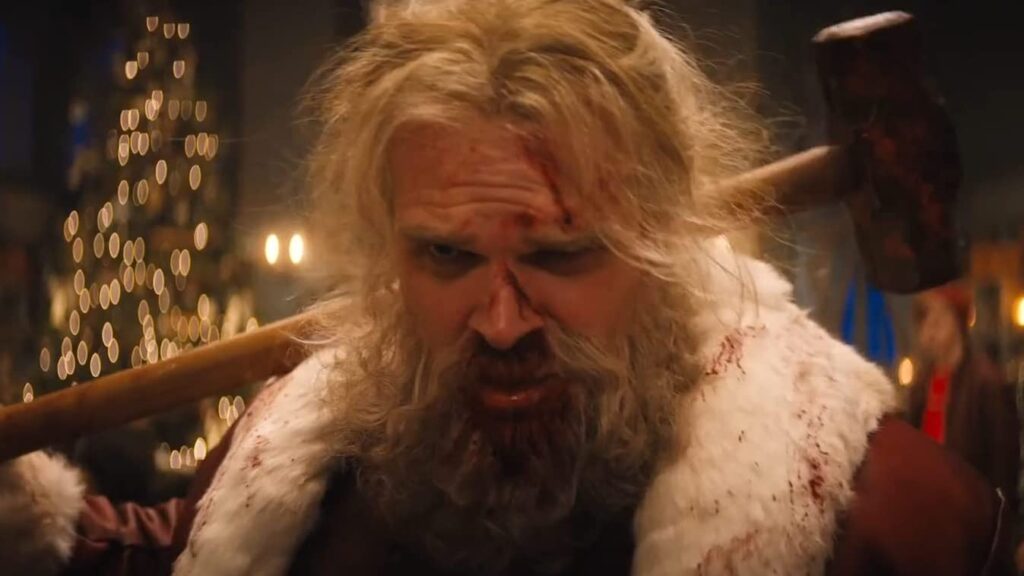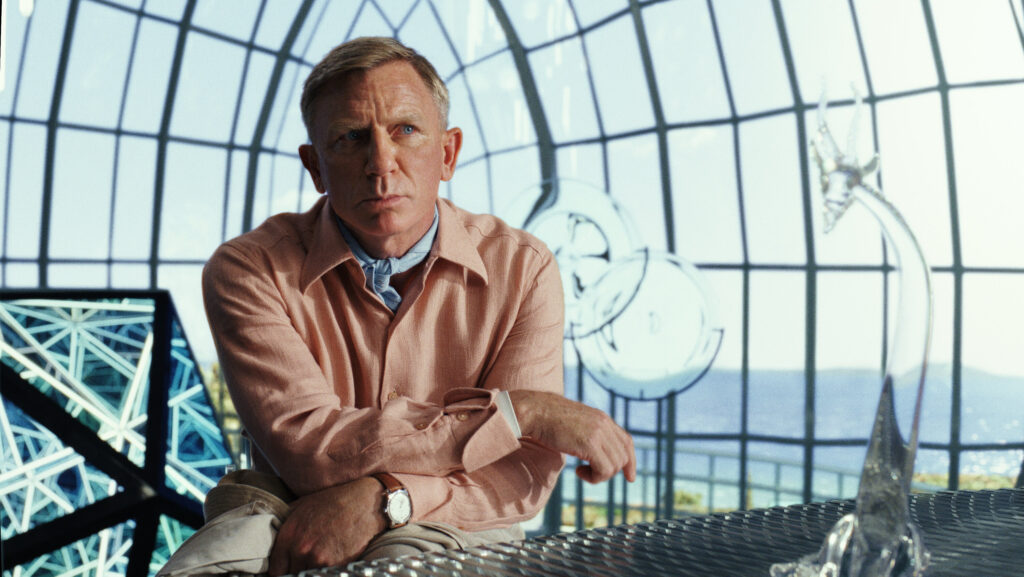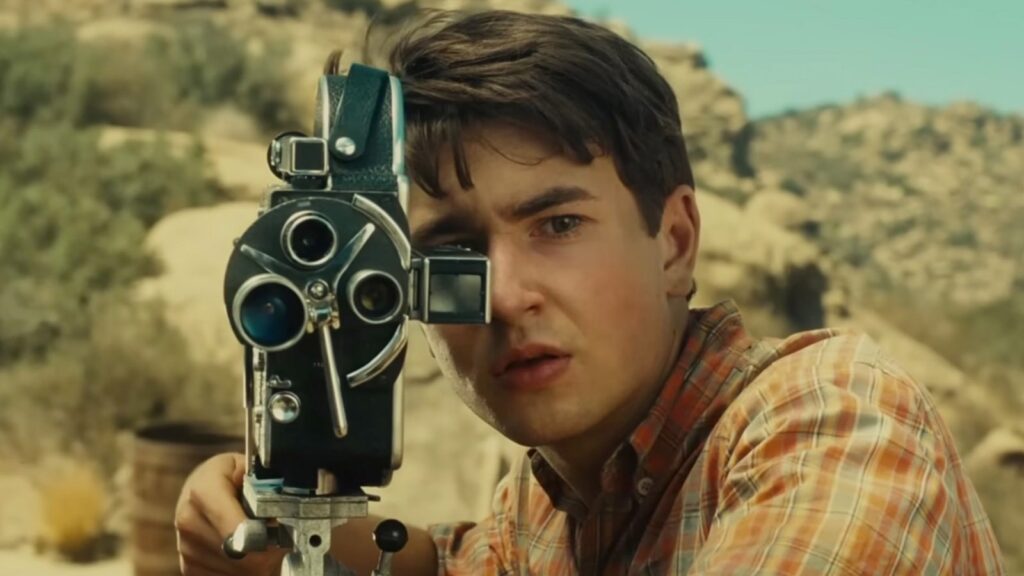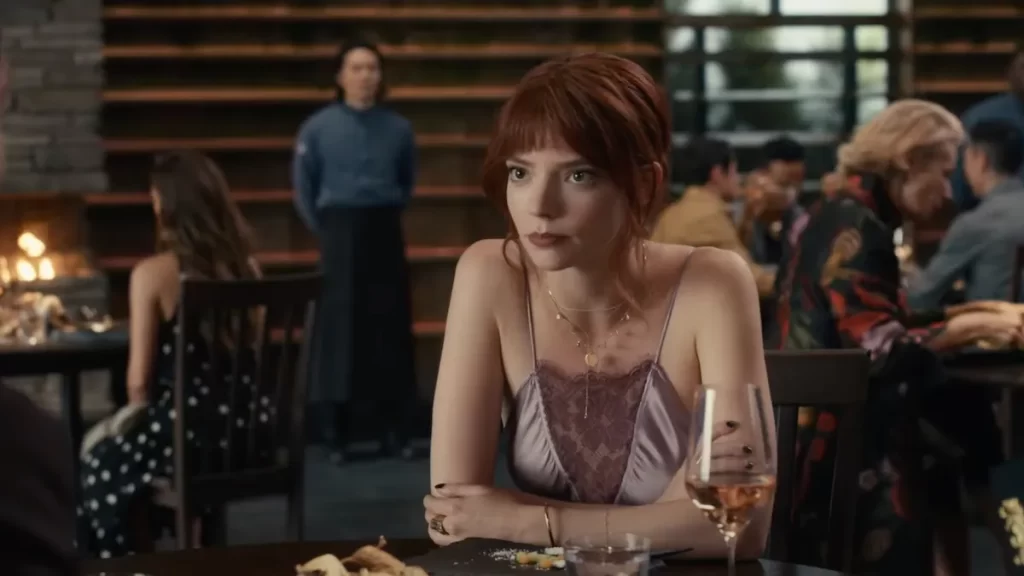Violent Night: Mad Santa

The moment that best encapsulates the tone of Violent Night, the smirking and sadistic new action comedy directed by Tommy Wirkola, occurs when a seven-year-old named Trudy (Leah Brady) has an earnest conversation over walkie-talkie with Santa Claus—not a mall employee impersonating Santa Claus, mind you, but the real mythological deal, complete with white beard, reindeer sleigh, and craving for homemade cookies. Strategizing about how to overpower the gang of psychopaths who have taken her and her family hostage, Trudy suggests a plan: “Shove coal right up their assholes!” Santa winces. “We don’t want you ending up on the naughty list,” he cautions, and so Trudy modifies her scheme: “Shove it up their anuses!”
Santa’s approving smile in response to Trudy’s revision would seem to carry some bizarre ethical implications—vigilantism is commendable, vulgarity is deplorable—but let’s ignore that. As a matter of humor, the joke here is that cherubic children saying dirty words is inherently funny. This isn’t necessarily wrong—comedy is often found at the intersection of the holy and the profane—but it speaks to the obnoxious complacency with which Wirkola and his writers, Pat Casey and Josh Miller, have approached their material. Forget about smart dialogue or inventive choreography; the real fun, this movie insists, lies in scatology and brutality. Read More




